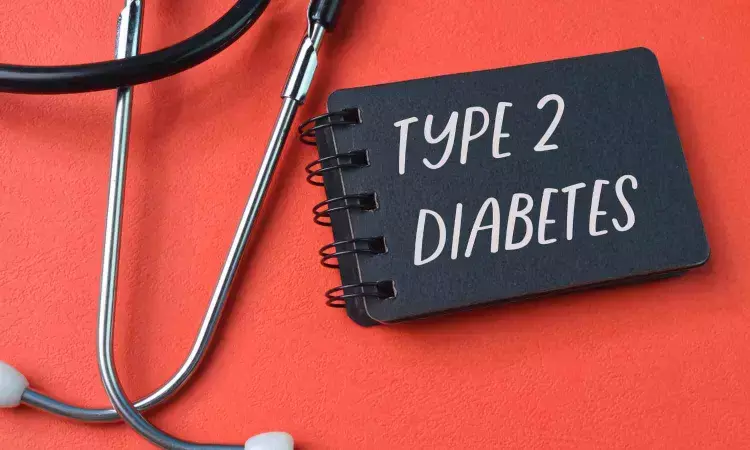- Home
- Medical news & Guidelines
- Anesthesiology
- Cardiology and CTVS
- Critical Care
- Dentistry
- Dermatology
- Diabetes and Endocrinology
- ENT
- Gastroenterology
- Medicine
- Nephrology
- Neurology
- Obstretics-Gynaecology
- Oncology
- Ophthalmology
- Orthopaedics
- Pediatrics-Neonatology
- Psychiatry
- Pulmonology
- Radiology
- Surgery
- Urology
- Laboratory Medicine
- Diet
- Nursing
- Paramedical
- Physiotherapy
- Health news
- Fact Check
- Bone Health Fact Check
- Brain Health Fact Check
- Cancer Related Fact Check
- Child Care Fact Check
- Dental and oral health fact check
- Diabetes and metabolic health fact check
- Diet and Nutrition Fact Check
- Eye and ENT Care Fact Check
- Fitness fact check
- Gut health fact check
- Heart health fact check
- Kidney health fact check
- Medical education fact check
- Men's health fact check
- Respiratory fact check
- Skin and hair care fact check
- Vaccine and Immunization fact check
- Women's health fact check
- AYUSH
- State News
- Andaman and Nicobar Islands
- Andhra Pradesh
- Arunachal Pradesh
- Assam
- Bihar
- Chandigarh
- Chattisgarh
- Dadra and Nagar Haveli
- Daman and Diu
- Delhi
- Goa
- Gujarat
- Haryana
- Himachal Pradesh
- Jammu & Kashmir
- Jharkhand
- Karnataka
- Kerala
- Ladakh
- Lakshadweep
- Madhya Pradesh
- Maharashtra
- Manipur
- Meghalaya
- Mizoram
- Nagaland
- Odisha
- Puducherry
- Punjab
- Rajasthan
- Sikkim
- Tamil Nadu
- Telangana
- Tripura
- Uttar Pradesh
- Uttrakhand
- West Bengal
- Medical Education
- Industry
Among newly diagnosed type 2 diabetics who lost weight, weight gain may increase risk of complications: Study

A register-based study from Finland identified three distinct BMI trajectory groups among patients with newly diagnosed type 2 diabetes. In a four-year follow-up, most patients followed a stable trajectory without much weight change. Only 10% of patients lost weight, whereas 3% gained weight. Mean BMI exceeded the threshold of obesity in all groups at baseline. Weight loss is a central treatment goal in type 2 diabetes, but the study shows that few patients succeed in it.
The study was carried out by researchers at the University of Eastern Finland, and the results were published in Clinical Epidemiology.
Patients belonging to each trajectory group were followed up for another eight years for diabetes complications. During the follow-up, 13% of all patients developed microvascular complications, 21% developed macrovascular complications and 20% of patients deceased. The risk of microvascular complications was 2.9 times higher and the risk of macrovascular complications 2.5 times higher among patients with an increasing BMI compared to those with a stable BMI. Micro- and macrovascular complications of diabetes can include, for example, retinopathy, nephropathy and neuropathy, as well as cardiovascular diseases.
“These results underscore the significance of continuous BMI monitoring and weight management in patients with type 2 diabetes. Tailored treatments and support with lifestyle changes are crucial for efficiently preventing weight gain and reducing the risk of diabetes complications,” says Doctoral Researcher Zhiting Wang of the University of Eastern Finland.
The study was carried out in North Karelia, Finland, using electronic health records from both primary and specialised health care. The study included a total of 889 adults with newly diagnosed type 2 diabetes in 2011 or 2012. The participants were grouped based on individual BMI trajectories from the diagnosis until 2014. Risks for microvascular complications, macrovascular complications, any diabetes complications and all-cause mortality from 2015 to 2022 across BMI trajectory groups were estimated.
Reference:
Wang Z, Lavikainen P, Wikström K, Laatikainen T. Trajectories of Body Mass Index and Risk for Diabetes Complications and All-Cause Mortality in Finnish Type 2 Diabetes Patients. Clin Epidemiol. 2024;16:203-212 https://doi.org/10.2147/CLEP.S450455.
Dr Kamal Kant Kohli-MBBS, DTCD- a chest specialist with more than 30 years of practice and a flair for writing clinical articles, Dr Kamal Kant Kohli joined Medical Dialogues as a Chief Editor of Medical News. Besides writing articles, as an editor, he proofreads and verifies all the medical content published on Medical Dialogues including those coming from journals, studies,medical conferences,guidelines etc. Email: drkohli@medicaldialogues.in. Contact no. 011-43720751


